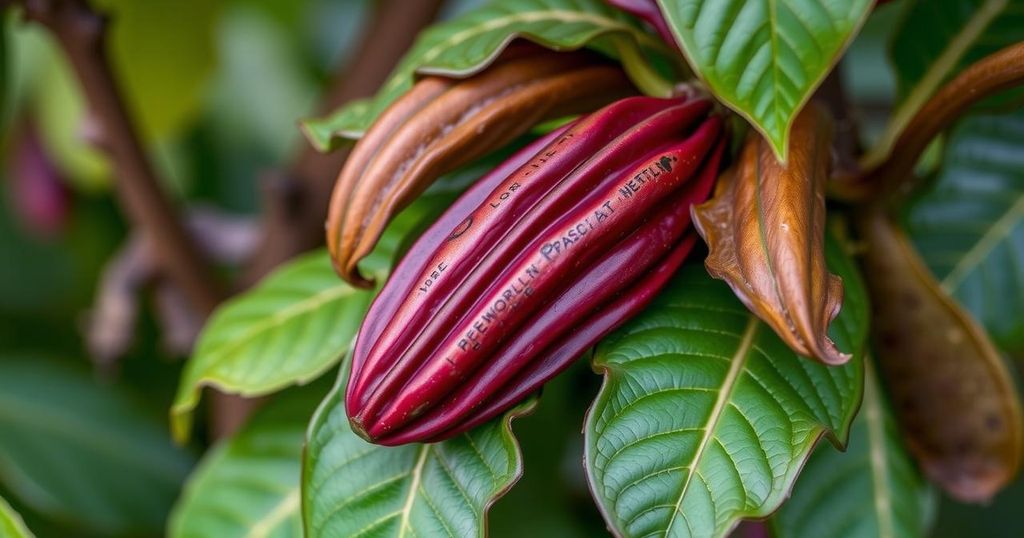Cocoa futures are witnessing a dramatic increase, soaring 175% this year to $11,570 per metric ton due to poor crop yields in Africa. This rise is attributed to various factors such as aging trees and climate challenges in major producer Ghana. The International Cocoa Organization has announced a third consecutive global shortfall in cocoa production. In contrast, other commodities like sugar are struggling with oversupply, showcasing the unique circumstances within the cocoa market and signaling broader concerns regarding food security.
Cocoa futures are experiencing remarkable growth, with New York prices surging by 175% this year, primarily due to poor crop yields from prominent African producing countries. Presently, New York cocoa futures have reached an impressive $11,570 per metric ton, influenced by several factors including aging cocoa trees, the prevalence of swollen shoot disease, and adverse climatic conditions in Ghana, a key supplier. The recent high point was observed on December 18, 2023, when prices peaked at $12,931 per ton, showcasing substantial potential returns. According to the International Cocoa Organization, the market has encountered a third consecutive global shortfall this season, with predictions of potential shortages next year. Concurrently, London cocoa futures reflect a robust annual increase of 160%, despite a slight dip in prices these past weeks.
The implications of these developments extend beyond mere pricing. Cocoa has emerged as a standout performer amid adversities faced by other commodities; for example, sugar futures are projected to incur losses due to oversupply. Additionally, coffee, despite weather-related difficulties in major production areas such as Brazil, also suggests possibilities for growth this year.
Furthermore, the surge in cocoa prices underscores broader concerns regarding food security and climate resilience, particularly in African nations where cocoa production is a critical economic driver. These escalating rates may represent the pressing challenges of climate change and its detrimental impact on agricultural outputs, potentially disrupting global supply chains and economic stability in the process.
Cocoa is a vital agricultural commodity, particularly for many African countries where it serves as a significant driver of economic activity and employment. In recent times, the cocoa market has been significantly impacted by multiple factors, including climate change, disease affecting crop yields, and aging cocoa trees. These issues have led to various disruptions in cocoa production, which are reflected in the rising prices of cocoa futures. Understanding the dynamics affecting cocoa is essential, given its foundational role in food security and economic health in producer nations. As a staple ingredient for numerous confectionery products, fluctuations in cocoa prices also impact global markets and consumer prices.
In conclusion, the substantial rise in cocoa prices signifies not only a successful outlook for this commodity amidst challenges faced by others but also highlights critical issues pertaining to food security and agricultural resilience in Africa. As cocoa prices continue to rise sharply, it becomes paramount for stakeholders to address the root causes of these production challenges, ensuring sustainable futures for both farmers and the broader market. The current trajectory indicates a period of volatility with meaningful implications for global commodity markets.
Original Source: finimize.com






